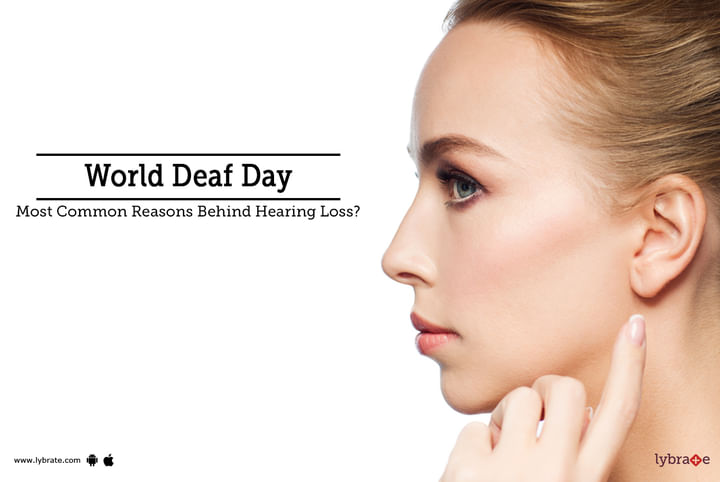World Deaf Day - Most Common Reasons Behind Hearing Loss?
This year’s World Deaf Day—set to be celebrated on 27th September—urges people to practice its message of living beyond fear, as is articulated in its motto: “Hearing for life.
World Deaf Day will be celebrated on 27th September this year, and like every year, numerous sensitization programmes will be organized by individuals and institutions to educate people about the implications of hearing loss. World Deaf Day is celebrated every year in the month of September to celebrate the memory of renowned artist and landscape painter Richard Seymour Redmond who lost his hearing abilities after a bout of scarlet fever at three years of age. Despite this impediment, he went on to create a life for himself that serves as a continuing testament to his incredible willpower, perseverance, and talent.
While hearing loss tends to be mostly irreversible, one can prevent and alleviate the degree of loss in numerous ways, owing largely to recent developments in medicine and technology. Before looking into options, it is best to familiarize oneself with the most common reasons behind hearing loss:
-
Exposure to Loud Noise - Although easily undermined by most people, it has been proven that constant exposure to very loud noises can permanently damage hearing. Since the loss happens gradually over time, patients tend to remain in the dark about their ongoing impediment until it’s too late.
-
Taking Medications that are Ototoxic - While this often comes as a surprise, there are in fact numerous medications that can negatively affect your hearing capacity, the most common ones being-
-
aspirin (in large dosages)
-
drugs used in chemotherapy
-
aminoglycoside antibiotics
Consult your doctor for possible side effects when medications are prescribed to you.
-
Ménière's disease - Usually affecting those between 30-40 years of age, the reason behind Ménière's disease is yet to be known. Frequently characterized by sensorineural hearing loss, this inner ear disease leads to dizziness, sensitivity to very loud noises, and a perpetual ringing sensation in the ear.
-
Presbycusis - Another kind of sensorineural hearing loss, Presbycusis develops with age and worsens when left untreated for long. Patients might find it difficult to comprehend the speech of other people since sound reaches them in an unclear and stifled manner.
-
Tumours or Bone Growth - Manifesting themselves as general ear infections, anomalous bone growths and tumours may develop inconspicuously in the middle or outer ear and can cause severe loss of hearing when left untreated. Bony growths, however, can be effectively resolved with surgery.
-
Hereditary Reasons - Genetic makeup plays a vital role in determining one’s hearing ability, although people may not necessarily be born with hearing impediments. Deafness may be accompanied by deteriorating eyesight when it has a late onset, as is the case with Usher’s Syndrome, a problem that has largely genetic roots.
-
Wax Build-Up - When the ear canal is obstructed with excess wax, sound cannot reach the eardrum. This is the most easily remedied form of hearing loss.
This World Deaf Day, do your best to spread awareness for preventing hearing loss!



+1.svg)
